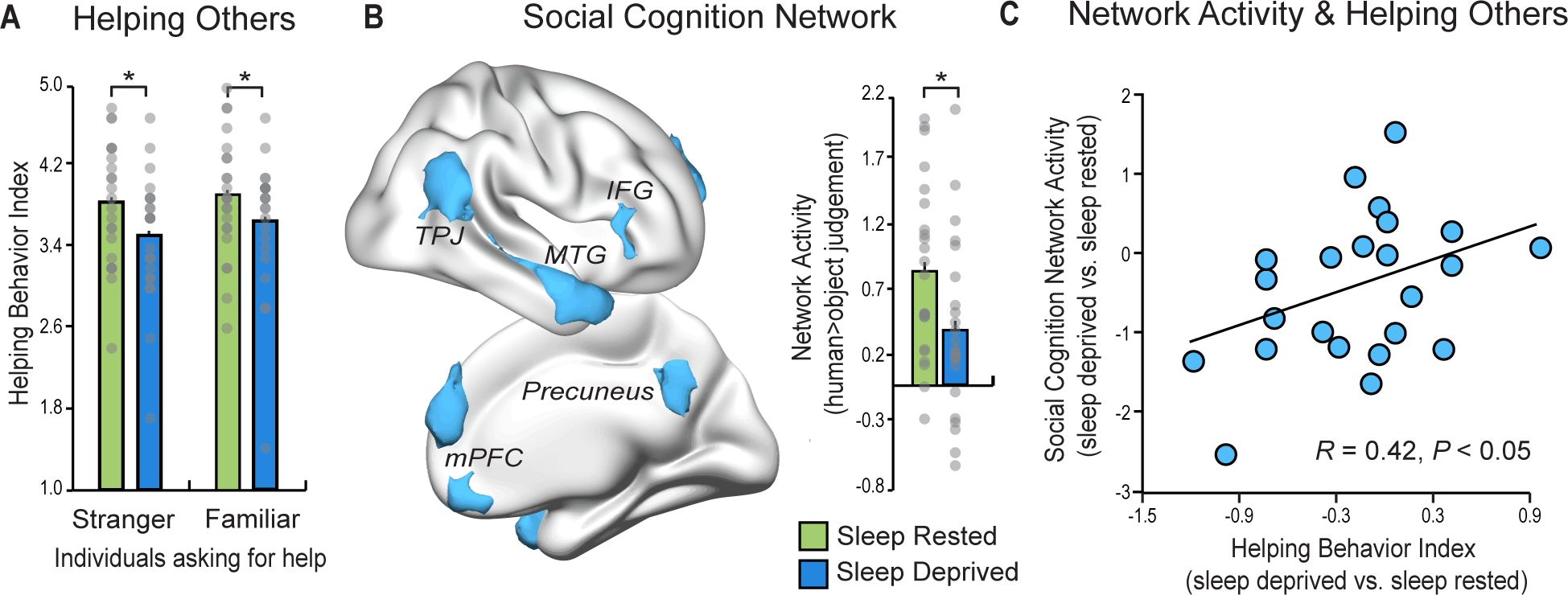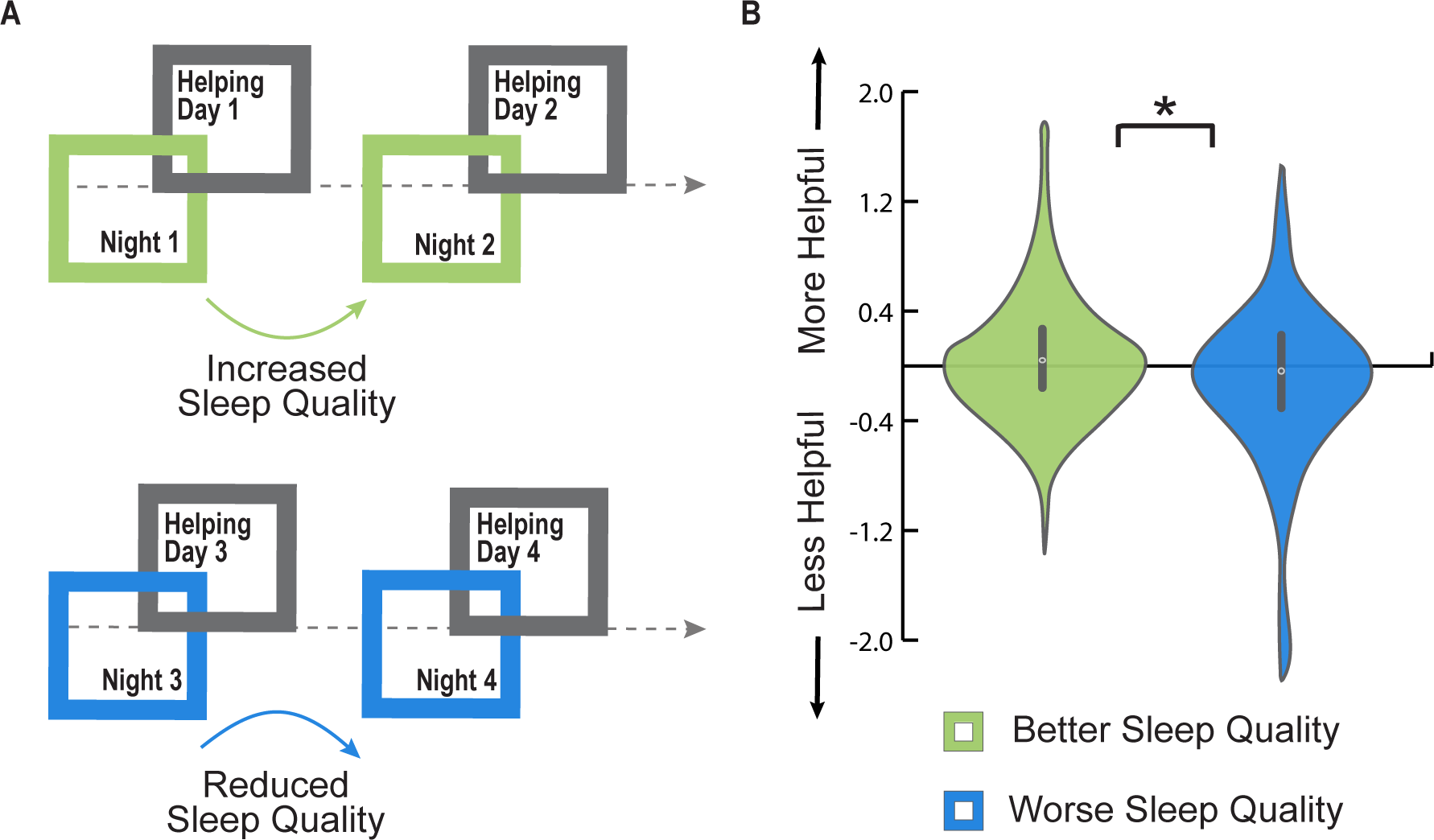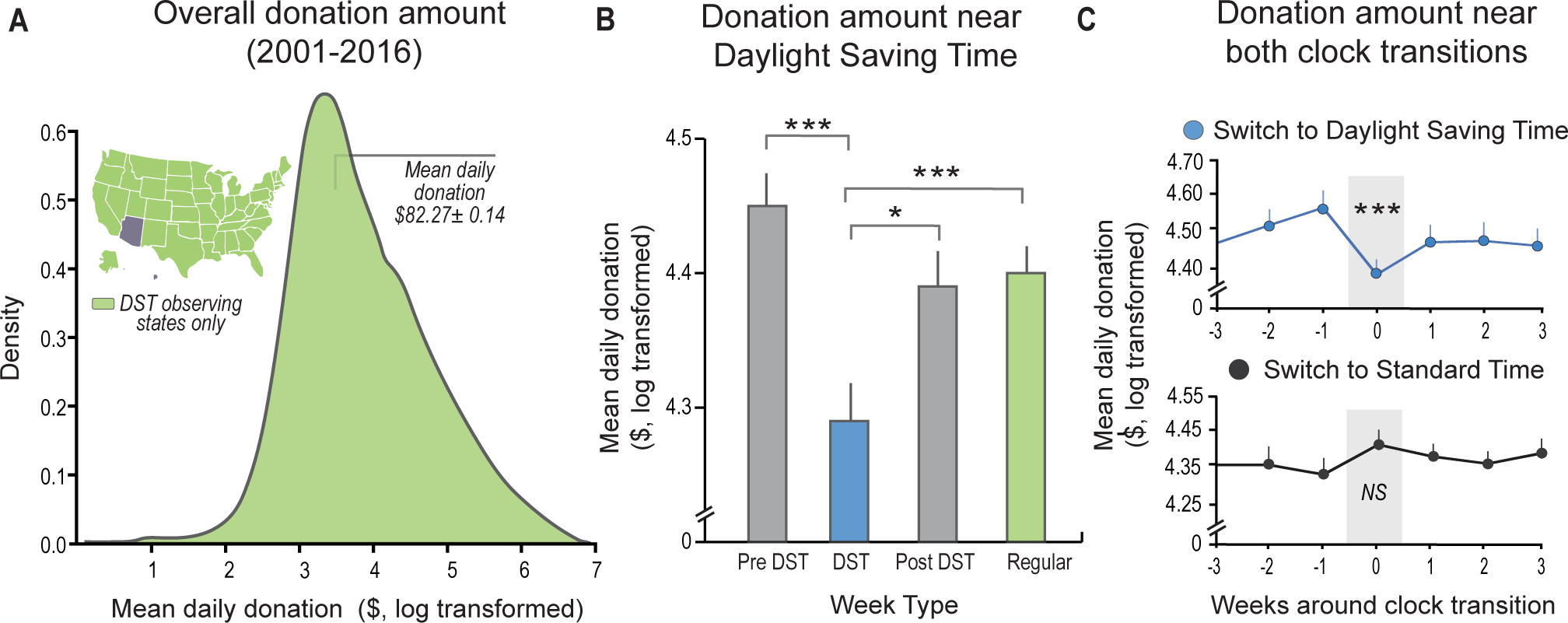This is a link-post to a study published a week ago in PLoS Biology by researchers at UC Berkeley that found that sleep loss lead to lowered altruistic tendencies across scales. From the abstract -
Across 3 replicating studies, here, we demonstrate that sleep loss represents one previously unrecognized factor dictating whether humans choose to help each other, observed at 3 different scales (within individuals, across individuals, and across societies). First, at an individual level, 1 night of sleep loss triggers the withdrawal of help from one individual to another. Moreover, fMRI findings revealed that the withdrawal of human helping is associated with deactivation of key nodes within the social cognition brain network that facilitates prosociality. Second, at a group level, ecological night-to-night reductions in sleep across several nights predict corresponding next-day reductions in the choice to help others during day-to-day interactions. Third, at a large-scale national level, we demonstrate that 1 h of lost sleep opportunity, inflicted by the transition to Daylight Saving Time, reduces real-world altruistic helping through the act of donation giving, established through the analysis of over 3 million charitable donations
Relevant figures from each study -
Study 1 (n=24)

Study 2 (n=136)

Study 3 - "assessed large-scale altruistic donation behavior during the annual transition to DST, analyzing over 3 million charitable donations made between the years 2001 to 2016 in the US."

I haven't read the paper in-depth so can't comment on it. If there's truth to the findings, especially the 10% reduction in donation amounts during DST weeks, it potentially presents a significant and tractable point of leverage to increase altruistic behaviors and adds on to this cause report on sleep. I'll also note that one of the authors of the study is Matthew Walker, author of Why We Sleep, which was the subject of much brohahau on LessWrong. (Alexey Guzey's criticism, Natália Coelho Mendonça counter criticism)
